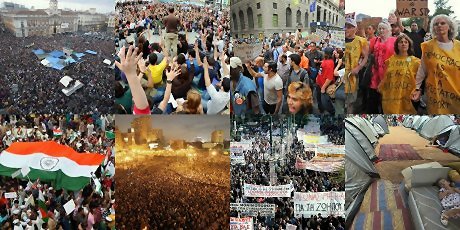
Customs
Until fairly recently, and in fact still for many modern humans, the human animal could only live within very marked boundaries. Beyond what was instinctively prompted; beyond what was feared; beyond what was lusted for; beyond what was the custom of the group – you could not go. One could not go beyond those boundaries. It was freedom after millions of years of unconsciousness and instinctive behaviour. It was an open door to infinite variety of action and feeling. It was frightening and disturbing because freedom means no set rules, the unknown, the yet to be. It was stupendous.
Without being able to act beyond our customs we would be imprisoned within certain very restricted reactions – a small repertoire – to our environment. Our response would be limited to what we had inherited through our instincts and possibly learned through painful experience. Human beings have a massive potential intelligence, but many of us are still extraordinarily limited in our repertoire of behaviour. We still haven’t quite taken in the fantastic meaning of art. We still haven’t really read the message left on the wall by the cave dweller who painted an outline of their hand, or fashioned the image of a bison, or who created symbols and ideas of gods and, or pissed a pattern in the snow.
Whatever the beginnings, it grew in complexity, as it has over periods of time with animals, but with humans it was very quick. And the important point I observed in watching all this information form in my experience, was its evolutionary path, and that the point of personal and collective awareness humans experience today is directly related to the path of the evolving complexity of the standing wave of their customary behaviour.
For instance the emerging ability in language, and therefore the emerging complexity within the human consciousness, had its roots in the primitive human experience. Fundamentally such early human beings were intensely interested in such things as survival amidst factors difficult to control; leadership such as chief or queen; the connection of leadership with a parental role of mother or father; the relationship of the individual and the family group to the tribe or race.
What I see is that our present day views of law, politics, religion, but more importantly our underlying loves, hates, prejudices, the sort of energies within people which drives them to kill a neighbour because they have a different skin colour or a different religion, arise out of the fundamental structures within the human consciousness. And this comes about because human consciousness is not an individual thing. It evolved just as our body did. It rests on natural laws and process in the same way. What we take to be a careful personalised state of mind is not so at all. It is a view of things, it is urges and responses we have almost entirely inherited from a collective pool of experience I have called it the standing wave of consciousness. See archetype of the paradigm
This was such a huge view of things it is difficult to fit in all the necessary bits of information to make it visible, even to myself again.
If we take any social structure such a government or religion, the causative factors behind human consciousness are operative in the present day structure of the organisation. Considering that the evolution of consciousness started at a point where human society was in small groups, where leaders and tribal heroes were of great importance for survival, these factors are the starting point. And despite rationalism, despite careful analysis and change, these factors are still prime in the organisation of social activities.
This is so commonplace it is accepted as a sort of unquestioned norm. In the view of such factors being unquestioned evolutionary phenomena, this IS questioned however. For instance the religious organisations around the world still adhere to this basic format. There is a male or female principle – even to the point of having a god figure in many cases – Why should God be shown as a male figure; God is said to be the creator of us, and should be both sexes in one. The structures are hierarchical. They form groups with very formed identities, to the point where one group will battle and kill members of another group. This is true of religion, politics and national grouping and organisation. Again I say all of this we take as normal. But the seeing it as an evolutionary direction of consciousness shows it simply as an event, not a destiny or normality. That a emerging level of human conception and social organisation was built upon the preceding order is obvious, yet we often fail to see this regarding the very nature of our personality, and its connection with social organisation and function.
Considering this, radical social change is not possible while human beings are still unconsciously a part of the standing customs which is an evolutionary activity or process. While human personality is embedded in this collective process, change can only be an extension of what has already existed, rather like a new twig on a tree growing from an existing branch, and going more or less in the same direction and on the same side and height of the tree.